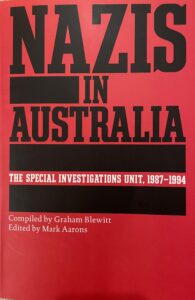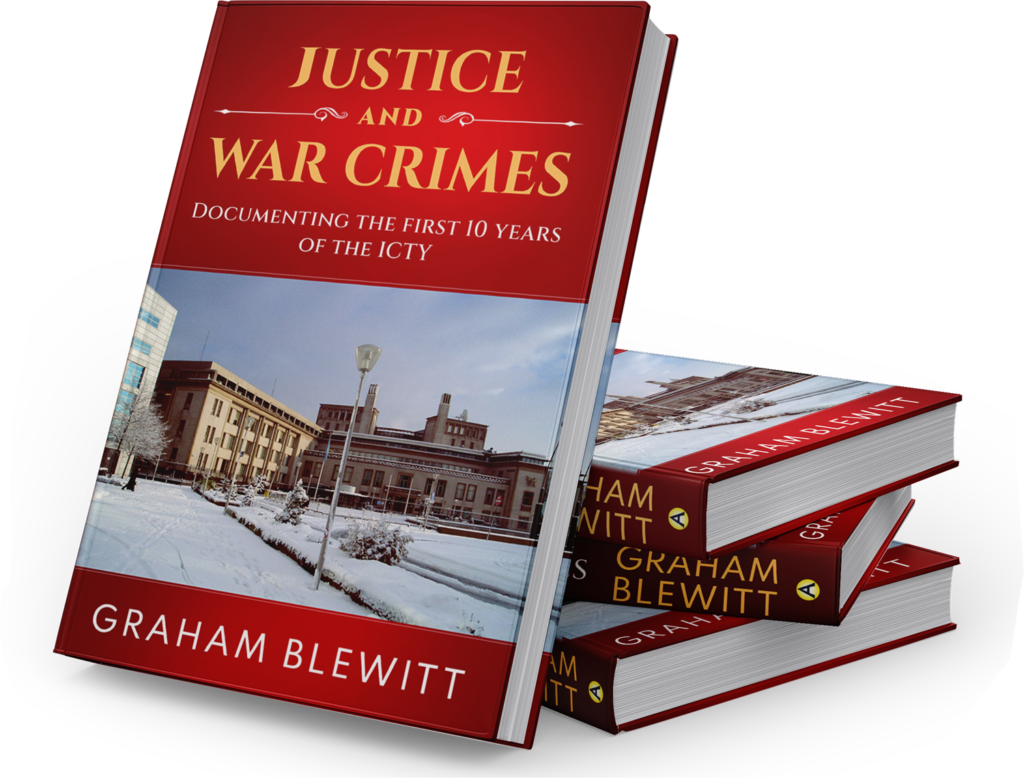NAZIS IN AUSTRALIA

Taken from the Epilogue – The SIU Legacy
On numerous occasions I have been confronted with the argument that the Special Investigations Unit (SIU) was a waste of time, effort and money because no convictions were recorded as a result of its work.
If the number of convictions was the only barometer to gauge the success of the SIU, then it was less than successful, but this is an oversimplified way to judge the importance and impact of the initiative. Such an approach is not the proper test.
The SIU clearly established that it was possible to investigate crimes committed on the other side of the world over forty-five years beforehand. It also established that it was possible to gather sufficient evidence to bring criminal prosecutions in this country, in the ordinary Australian criminal courts, and for such cases to be presented before a jury.
In doing so, it also established the feasibility of undertaking historical research in archives throughout the world, many of which had never been visited by Western historians. The unit was able to negotiate an agreement with the Soviet Union to allow Soviet citizens to travel outside the USSR to testify in Australia – a world first. The SIU also demonstrated its ability to undertake exhumations, recovering over a thousand bodies, victims of the Nazi genocide in Ukraine.
There was a time when Nazi collaborators living in Australia were wondering when the SIU knock on the door would come.
Most importantly, the SIU developed the skills and experience of those involved in the process, paving the way for them to participate in other war crimes tribunals.
With a degree of bias, I would say the SIU was a tremendous success despite the lack of courtroom convictions. On the question of convictions, too, I have no doubt that the Wagner case was the strongest of the three cases commenced by the unit. Had it gone to trial, it would surely have resulted in a conviction. Similarly, if the case of Karlis Ozols had not been stymied by the federal government, it would have been a landmark prosecution of a major Nazi war criminal who took refuge in this country.
For these reasons, I am of the firm opinion that the SIU was neither a failure nor a waste of time and money. Australia should be proud that, for a brief period in our legal history, we stood up and did the right thing. There was a time when Nazi collaborators living in Australia were wondering when the SIU knock on the door would come.
To this day, it remains my firm opinion that it is incumbent on the Australian government to create a permanent independent, fully staffed and funded war crimes unit in this country to investigate all war criminals living here, regardless of where their crimes were committed. This would ensure that the expertise and institutional knowledge developed by the staff of such a unit would not be dispersed and evaporate, as was the case with the SIU/WCPSU.

JUSTICE AND WAR CRIMES

Justice and War Crimes traces the creation of the Office of the Prosecutor (OTP) in early 1994 prior to the arrival of the first Prosecutor, Richard Goldstone and his two successors. It describes the Tribunal’s incredible journey towards its total success. Much of this story has never been told before.
It is a personal and unique look at the inner workings of the OTP (from 1994 to 2004), the first international criminal court since the Nuremburg war crimes trials at the end of World War II.
It describes how, faced with the prospects of a complete failure, the OTP brought about the apprehension of every living person indicted by the Tribunal and prevented the outbreak of war in North Macedonia.
It follows the murky path created by those who did not want to see NATO becoming involved in the apprehension of indicted war criminals. It outlines how the Kosovo conflict brought about the indictment and prosecution of Slobodan Milosevic, the first political leader of any country to be indicted for genocide.
Justice and War Crimes tells the untold story of a pivotal moment in the history of international justice and is a timely reminder of the difficulties and complexities involved in the prosecution of modern war crimes.